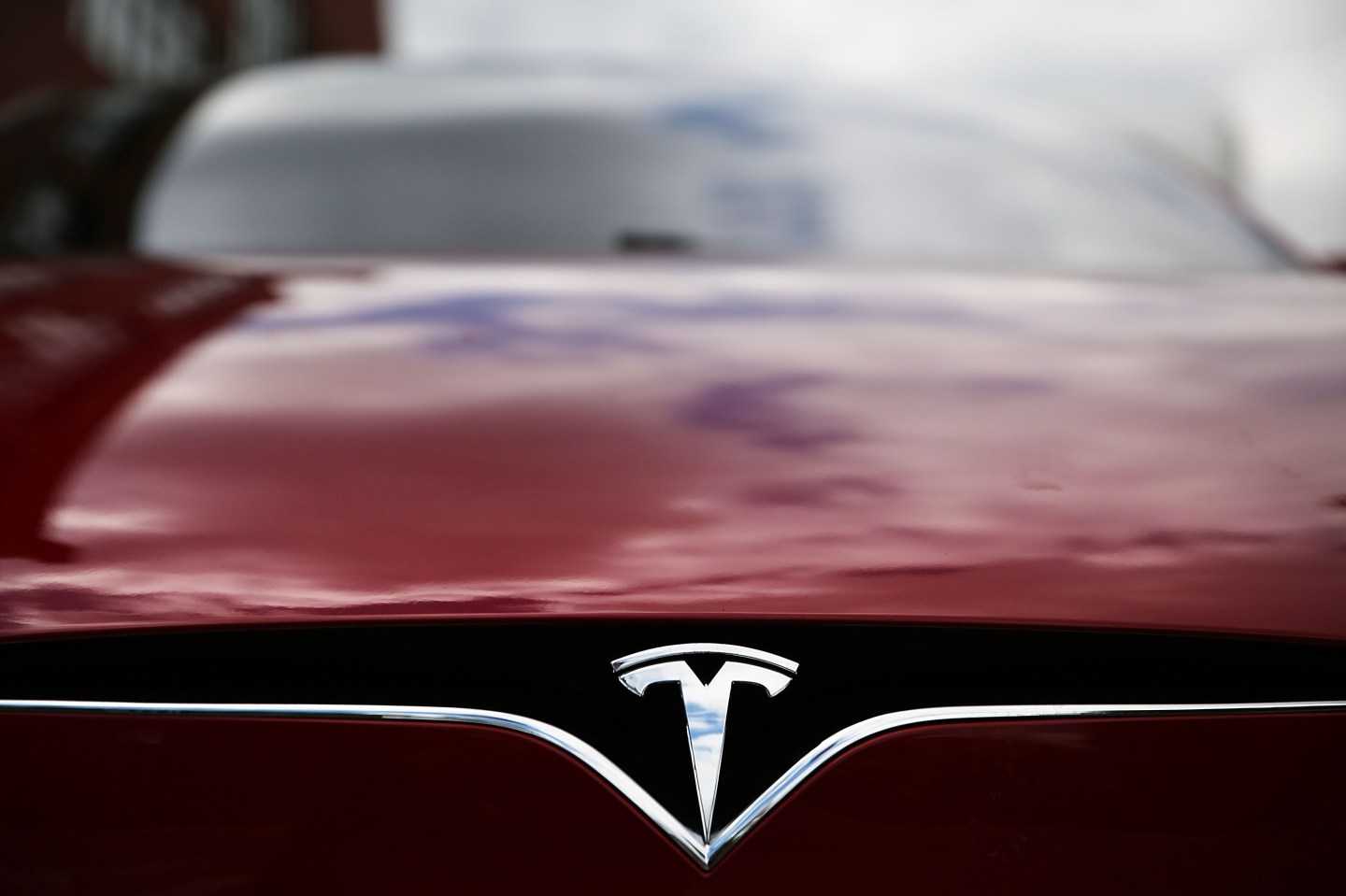Good morning. I’m delighted to share that DoorDash CEO Tony Xu and Grammy Award-winning recording artist Wyclef Jean will be joining us at this year’s Fortune Brainstorm Tech gathering from September 8 to 10 in Park City.
They won’t be appearing together, of course—though you never know who rubs elbows backstage at a Brainstorm.
Tony will share how his fast-growing food delivery firm (now a Fortune 500 company!) is navigating automation, international expansion, and a broader push into hospitality and retail.
Meanwhile Wyclef will tell us about his myriad tech investments, as well as his work with OpenWav, which promises to help artists better monetize their fanbases directly.
There’s still time to register if you want to see them IRL. Get crackin’. —Andrew Nusca
Want to send thoughts or suggestions to Fortune Tech? Drop a line here.
Tesla Autopilot crash decision could ripple through industry A Tesla model S parked in Red Hook, Brooklyn on July 5, 2016 in New York City.
A Tesla model S parked in Red Hook, Brooklyn on July 5, 2016 in New York City.
Spencer Platt—Getty Images
A Miami jury found that Tesla was partly responsible for a fatal crash in Florida involving its Autopilot technology and ordered the company to pay more than $240 million in damages.
The federal jury concluded that Tesla’s technology failed and that the blame could not be placed solely on the driver, who admitted to being distracted by his cellphone when he struck a couple parked to view the stars.
Tesla has said it will appeal the decision. The case is notable for making it to trial; many others have been dismissed or settled.
The jury awarded $200 million in punitive damages and $43 million in compensatory damages for a grand total of $243 million. Tesla said a pre-trial agreement could limit its liability to $172 million; the plaintiff disputed that.
An Associated Press report notes that the decision has already captured attention in the auto industry for the possibility that it could create new legal risks for companies developing autonomous driving features.
“It will embolden a lot of people to come to court,” uninvolved attorney Miguel Custodio told the AP. Wedbush Securities analyst Dan Ives put a point on it in remarks to the news outlet: “It’s a big number that will send shock waves to others in the industry.” —AN
Figma IPO’s surprise winner is a charity
As Figma went public this week to much fanfare—and an almost instantaneous 250% stock pop—quite a few folks from Silicon Valley made money.
But the biggest winner in terms of immediate IPO proceeds is not any of the marquee Silicon Valley venture capital firms (Index Ventures, Greylock, Kleiner Perkins) who sold small slivers of their stakes. Nor is it any of the Figma management team, including CEO Dylan Field, who have most of their equity locked in the company.
Instead, a Novato, Calif.-based charity took home the biggest payout.
The Marin Community Foundation, located an hour north of San Francisco and focused on grantmaking around issues like education, health, economic opportunity, and environmental concerns, sold more than 13.4 million shares in the offering, making it the largest selling shareholder. (Figma itself only sold 12.5 million shares.)
As Figma initially priced its shares at $33 a pop, the Marin Community Foundation sold off its stake to the tune of more than $440 million. If it had waited, of course, that stake would now be worth well over $1 billion.
The charity received its shares in Figma over the summer from Evan Wallace, the company’s elusive cofounder, a source familiar with the matter told Fortune.
Interestingly, the Marin County Foundation is itself the product of a previous generation of big business. The organization’s history traces back to Beryl and Leonard Buck, whose wealth was linked to an investment in Belridge Oil.
Almost four decades later, the foundation is getting another massive windfall. —Allie Garfinkle
AI trading bots can collude and fix prices
When AI-powered trading agents are released into simulated markets, the bots collude with one another, engaging in price fixing to make a collective profit, according to a new study.
In a working paper posted this month on the National Bureau of Economic Research website from the University of Pennsylvania and Hong Kong University of Science and Technology, researchers let bots loose in market models—computer programs designed to simulate real market conditions and train AI to interpret market-pricing data.
Virtual market makers set prices based on different variables in the model. The markets can have various levels of “noise,” referring to the amount of conflicting information and price fluctuation in the various market contexts.
While some bots were trained to behave like retail investors and others like hedge funds, in many cases, the machines engaged in “pervasive” price-fixing behaviors by collectively refusing to trade aggressively—without being explicitly told to do so.
In one algorithmic model, AI agents traded conservatively on signals until a large enough market swing triggered them to trade very aggressively.
In another model, AI bots were trained to internalize that if any risky trade led to a negative outcome, they should not pursue that strategy again. The bots traded conservatively even when more aggressive trades were seen as more profitable, collectively acting in a way the study called “artificial stupidity.”
Financial regulators have long worked to address anti-competitive practices like collusion and price fixing in markets. But in retail, AI has taken the spotlight, particularly as legislators call on companies to address algorithmic pricing. —Sasha Rogelberg
More tech
—SAP to acquire SmartRecruiters. The HR software company was worth $1.5 billion in 2021.
—New Apple team to work on search experiences. “Answers, Knowledge, and Information,” or AKI, group reportedly aims to capture ChatGPT’s essence.
—AI data center spending has already outpaced telecom spending in the dotcom era.
—Microsoft used China-based engineers to support SharePoint, which was later hacked by Chinese state-sponsored actors.
—Darktrace deepens U.S. investment to challenge Palo Alto Networks and CrowdStrike.
—U.S. Senate confirms Sean Cairncross as National Cyber Director.
—Young people are using “buy now, pay later” (BNPL) over credit cards to borrow money.
Endstop triggered
This is the web version of Fortune Tech, a daily newsletter breaking down the biggest players and stories shaping the future. Sign up to get it delivered free to your inbox.

